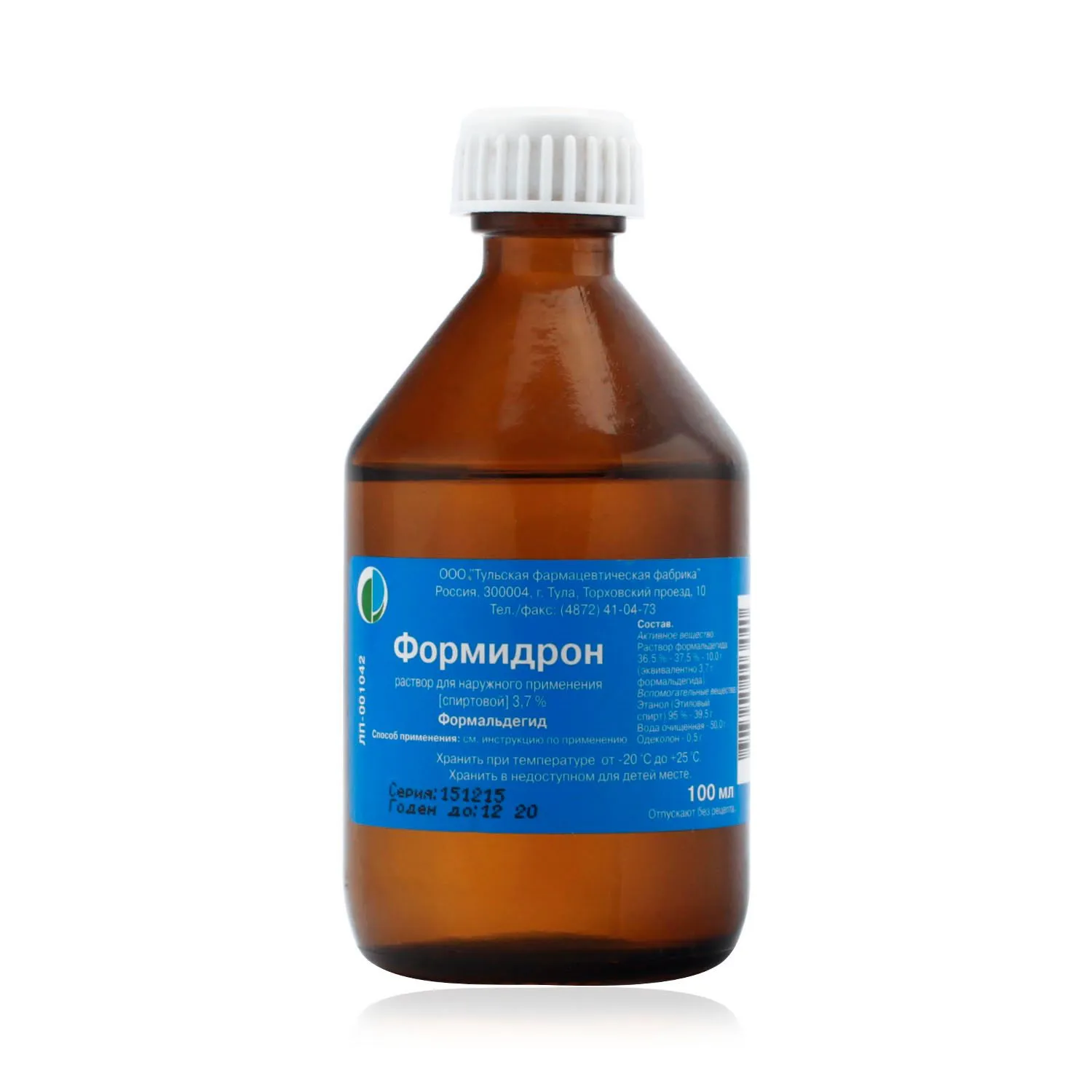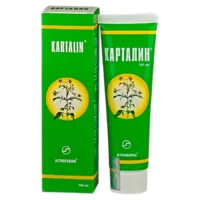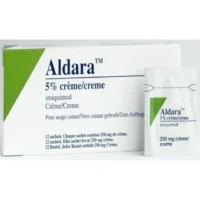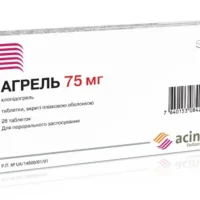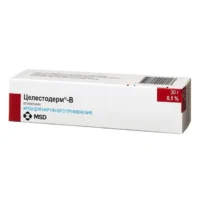Description
Formidron (Formaldehyde, Ethanol) 100 ml Solution for External Use
Ingredients
Active substances: formaldehyde, ethanol.
Mechanism of Action
Formaldehyde denatures proteins in microorganisms, leading to their death. Ethanol disrupts cell membranes, enhancing the antimicrobial effect. Together, they offer a broad spectrum of antimicrobial activity.
Pharmacological Properties
Formaldehyde and ethanol are well-known antiseptics with proven efficacy in killing bacteria and viruses on the skin. They reduce microbial contamination, making them valuable in wound care and infection prevention.
Indications for Use
Formidron solution is indicated for external use to disinfect and cleanse the skin. It is suitable for wound care and as a topical antiseptic.
Contraindications
Do not use Formidron solution if you are allergic to formaldehyde or ethanol. Avoid contact with eyes and mucous membranes.
Side Effects
Common side effects may include skin irritation or allergic reactions. Discontinue use if any adverse reactions occur.
Usage Instructions
Clean the affected area before applying Formidron solution. Apply a small amount using a cotton ball. Do not bandage unless directed by a healthcare provider.
Benefits Compared to Analogues
Formidron solution offers potent antimicrobial properties, making it a reliable choice for external antiseptic use. Its broad spectrum of activity sets it apart from other antiseptics.
Suitable Patient Groups
Formidron solution is suitable for use in adults, children, and the elderly. However, caution is advised in patients with known allergies to the ingredients.
Storage Conditions and Shelf Life
Store Formidron solution in a cool, dry place away from direct sunlight. Check the expiration date on the packaging and do not use beyond that date.
Packaging Description
Formidron solution is available in a 100 ml bottle with detailed instructions for use. The packaging is designed to maintain the quality and integrity of the product.
Clinical Evidence and Proven Effectiveness
Formaldehyde and ethanol solutions have been studied in clinical trials, demonstrating their effectiveness in reducing bacterial load on the skin and preventing infections. Proper application techniques are crucial for optimal results.

